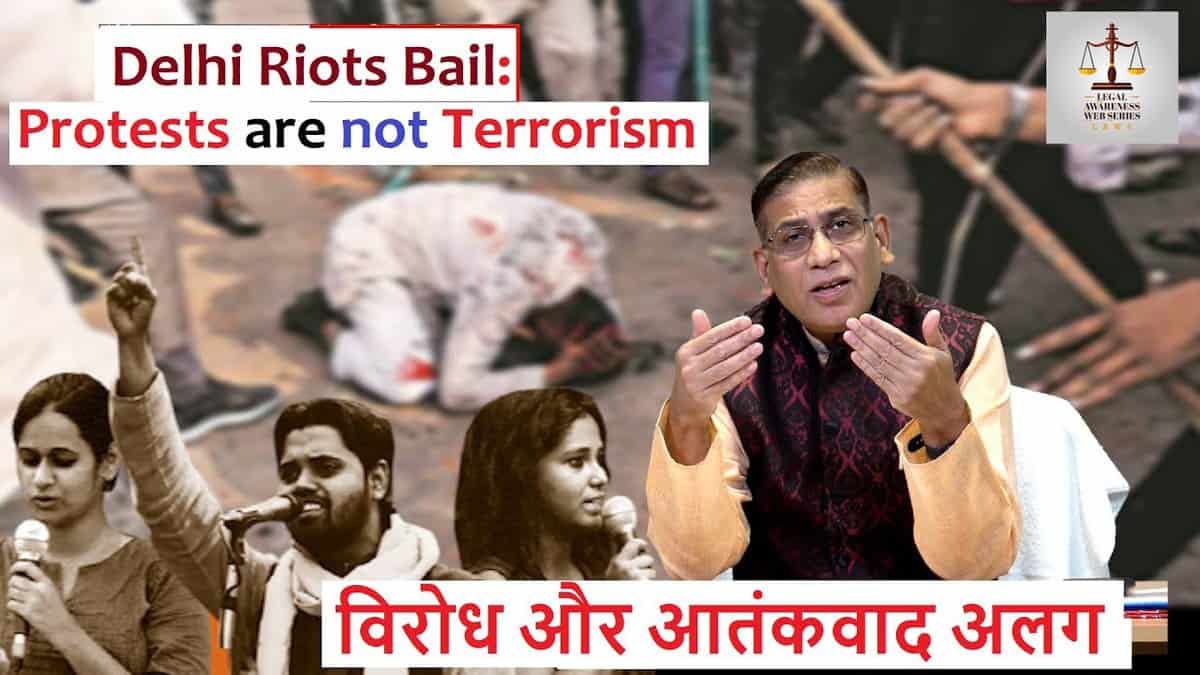Hailing the Delhi High Court Judgment on right to protest and granting of bail to three activists accused in the Delhi Riots case, legal luminary Faizan Mustafa said that it should serve as a milestone in police and media misrepresenting them as ‘deliberate hate propaganda.’
He said that the recent judgment by Justice Siddhart Mrinual as one which demolished the deliberate hate propaganda and the condemning theories that were being spread by the Delhi police and the media. He pointed out that police were not going after those who were instigating violence, protests by giving provocative speeches but instead were after activists who brought issues to the notice of the society.
He was voicing his opinion in a recent episode on his platform, The Legal Awareness web series. The series is aired on the YouTube channel aimed at creating awareness about the current legal issues. So far he has produced about 400 videos on a variety of subjects.
In this episode he has started off by citing the Supreme Court judgment in P N Kumar case wherein the SC underscored the importance of collegium and said that the high court judges play an important role. Taking away their feedback from the collegium sets a bad example. He says that the opinions of the high court judges are still considered informally by the collegium judges.
In the video, reading out the judgement, he highlights the main points raised by Justice Arup. He said that the right to protest is a democratic right and cannot be interpreted as the act of terrorism which has wider sense and is against the country. Protest is held against the functioning of the law, acts of the government and not against integrity and secularism of the country.
He invoked the 2004 Supreme Court order explaining what amounts to terrorism and says that this cannot be equated with criticism of the usual law and order problem. So the protest should be dealt with that quantum and not by applying UAPA, TADA, NIA and other sedition laws.
Moreover, he says the High Court’s observation that ‘In its anxiety to suppress dissent the State has blurred the line between the right to protest and terrorist activity.’ He questions all the arrests made under UAPA till now. He believes that these clear observations may have sent a message to the government of the day that when these cases would go for trial, they will not stand ground for conviction. If the intention of the government was only to threaten then it has already been achieved.
At the end of his explanation he said that Prime Minister Modi has made a good point at G7 saying that “liberal democracies are our natural ally.” This, he said can only happen by accepting the dissent.
Faizan Mustafa is a senior constitutional teacher currently working as the Vice Chancellor of National Academy of Legal Studies and Research (NALSAR) University of Law, Hyderabad.


